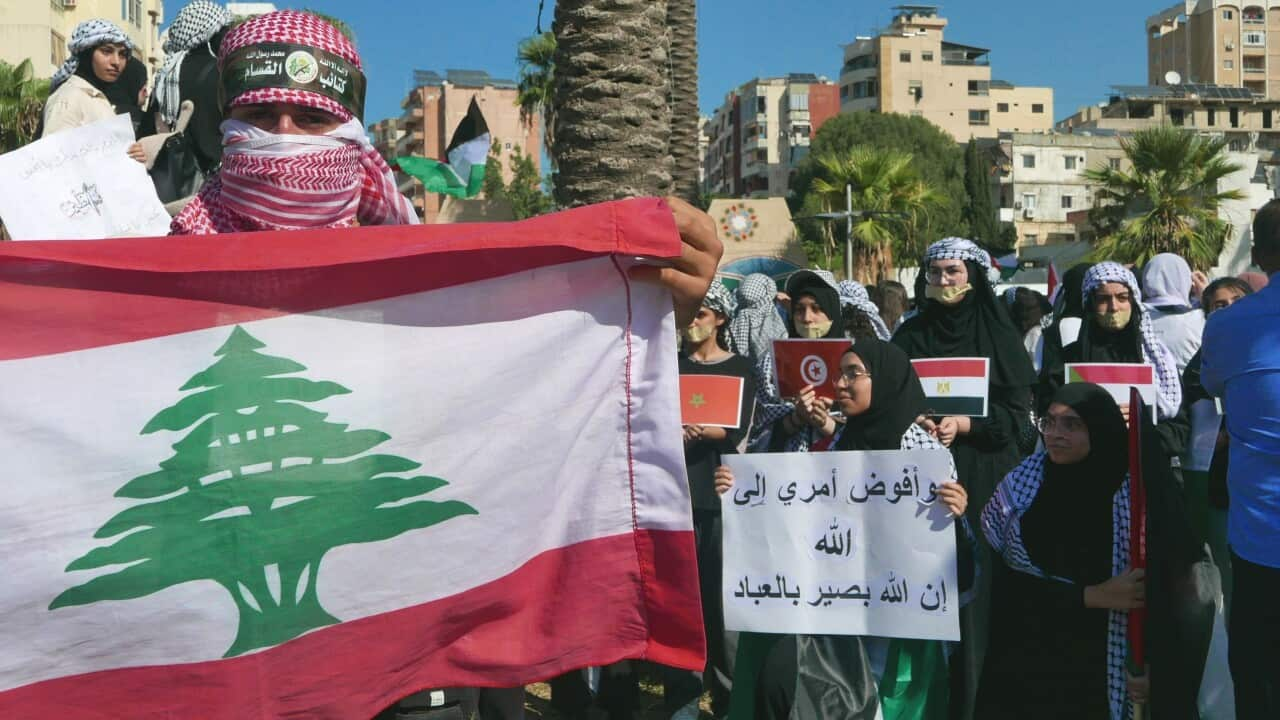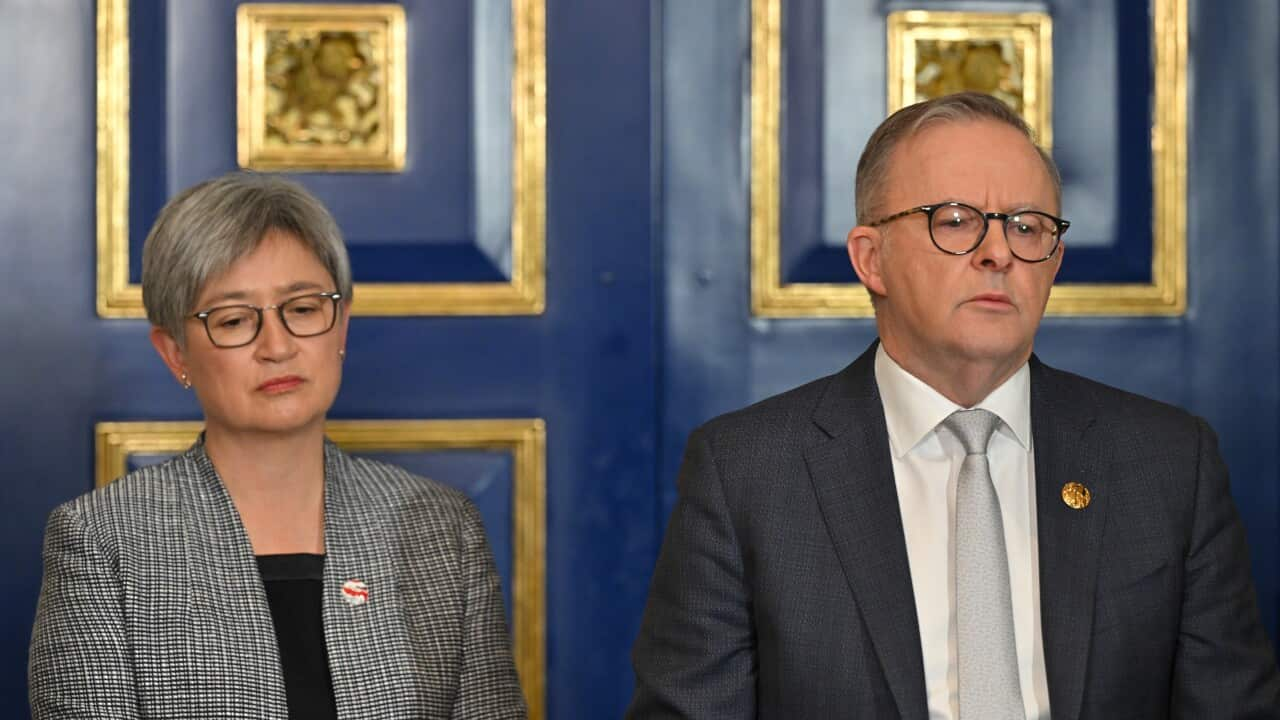Key Points
- Lebanese state is paralysed since financial collapse four years ago.
- There are big questions over who would pay to rebuild after any war.
- Hezbollah is clashing with Israel but has no interest in a big war, sources close to the group said.
With an economy in ruins and a crumbling state, Lebanon can ill afford another war between Hezbollah and Israel.
Iran-backed Hezbollah knows this and is keeping Lebanon's crises in mind as it plots the next steps in the conflict with Israel, sources say.
across the Middle East, the risk of war between Hezbollah and Israel remains higher than at any point since their last big conflict in 2006.
Analysts say the Shi'ite group could escalate if Hamas appears to be on the ropes in the Gaza Strip 200 km (130 miles) away, while Lebanese leaders fear Israel could choose to instigate a .
But with Israel warning Hezbollah it would wreak "devastation" upon Lebanon were the group to open the front, the costs of any war loom large in a country already suffering one of the most destabilising phases since its 1975-90 civil war.
"Hezbollah has no interest in war. Lebanon has no interest in war", a source familiar with Hezbollah's thinking said.
The group did not want to see the country destroyed and Lebanese fleeing from the south as thousands already have, the source said.
With state coffers empty, many also wonder who would pay to rebuild. Some question whether Sunni-led Gulf Arab states that financed reconstruction in 2006 would rush to help this time, given Hezbollah's bigger role in Lebanon.
Hezbollah's clashes with Israeli forces at the border have been calibrated to avoid major escalation so far, sources say, though more than 40 of its fighters have been killed.
However, Hezbollah has also indicated a readiness for war, reflecting its position as the spearhead of an Iran-backed alliance against Israel and the United States.
Lebanese politicians have urged Hezbollah not to escalate, though they have little to no sway over its decisions.
"The fate of Lebanon is at stake," Druze leader Walid Jumblatt said, calling this perhaps the most dangerous phase he had seen in his political career.
He said there was nothing Lebanese could do to stop a war instigated by Israel.
"But from our side, we must control matters, via dialogue and advising the brothers in Hezbollah to keep the rules of engagement as they are," he said in comments to media.
'Lebanon will pay'
Israeli President Isaac Herzog has said Israel was not looking for a confrontation on its northern border "but if Hezbollah drags us into war it should be clear that Lebanon will pay the price".
One of Hezbollah's closest allies, the Christian politician Suleiman Frangieh, said on Wednesday the group did not want war. If it had, Hezbollah fighters would have stormed Israel on Oct. 7 as Hamas did from Gaza, he said.
One senior Lebanese official said governments had contacted Lebanon to cool tensions.
"We're telling them that instead of telling us to restrain Hezbollah, they need to put pressure on the Israelis not to escalate," he said.
The last several years have been particularly difficult for Lebanon, which has known little stability since independence and endured wars including Israeli invasions in 1978 and 1982.
Decades of corruption and mismanagement by ruling politicians led the financial system to collapse in 2019, wiping out savings, demolishing the currency and fuelling poverty.
The following year, Beirut was shattered by a huge chemical explosion at the port. Hezbollah used its sway to help derail an investigation that sought to prosecute some of its allies, calling it politicised. Tensions led to deadly violence.
The state is barely functioning, while factional squabbling has left it without a president and a fully empowered government.

Smoke rises from the Lebanese village of Maroun Al Ras, near the Israeli village of Avivim, as a result of Israeli artillery shelling. Source: EPA / Atef Safadi
"We would be facing a scenario of real terror - the destruction of the infrastructure in Lebanon and aborting any prospect of economic recovery," he said.
Lebanon took years to rebuild from the 2006 war which killed 1,200 people in Lebanon, mostly civilians, and 158 Israelis, most of them soldiers.
After the war, which began after Hezbollah kidnapped two Israeli soldiers and killed others in a cross-border raid, Hezbollah leader Sayyed Hassan Nasrallah said the group had not anticipated war and would not have carried out the operation if he had known it would lead to such a conflict.
'Calling the shots'
Seventeen years later, Hezbollah's massively expanded arsenal has cemented a power balance in its favour to the dismay of opponents who say the group is once again deciding matters of war and peace.
"They are calling the shots. This is totally unacceptable," said Ghassan Hasbani, a leading member of the Lebanese Forces party, a Christian faction staunchly opposed to Hezbollah.
"There are serious concerns about Lebanon being dragged into a destructive confrontation by Hezbollah, at a time when the fragility of its social and economic situation mean it cannot sustain any further instability."
Mohanad Hage Ali of the Carnegie Middle East Center said Hezbollah would be thinking hard about how reconstruction would be financed after any war, with questions over whether Gulf Arab states would help and how much cash Iran could provide.
"If there is no reconstruction, there is definitely a political cost for the organisation ...People will ask questions, and there will be widespread anger."



